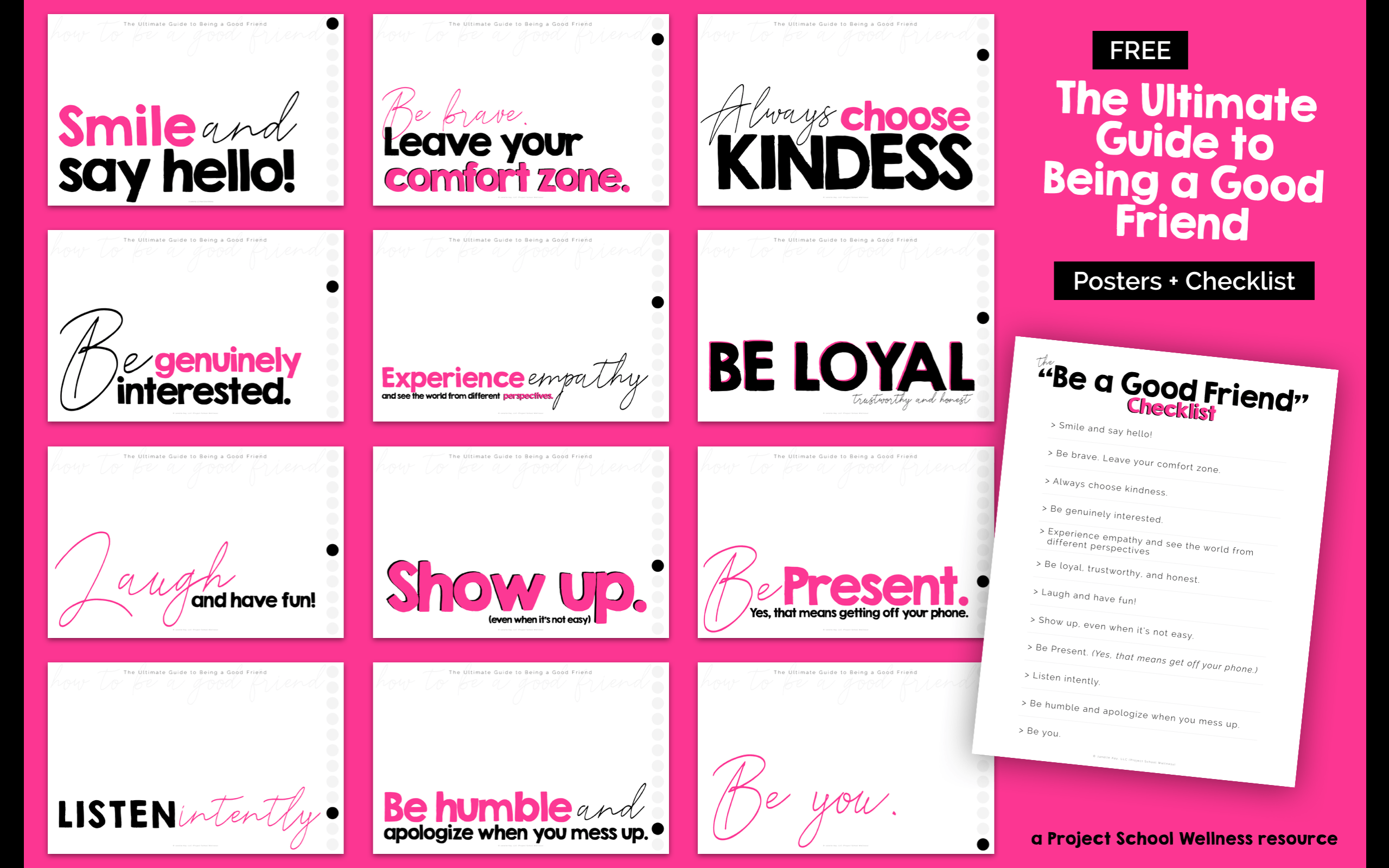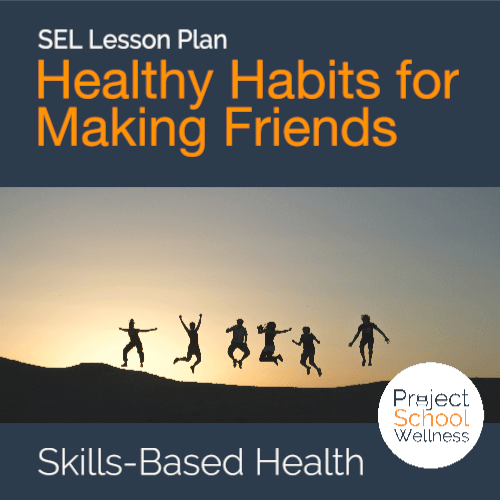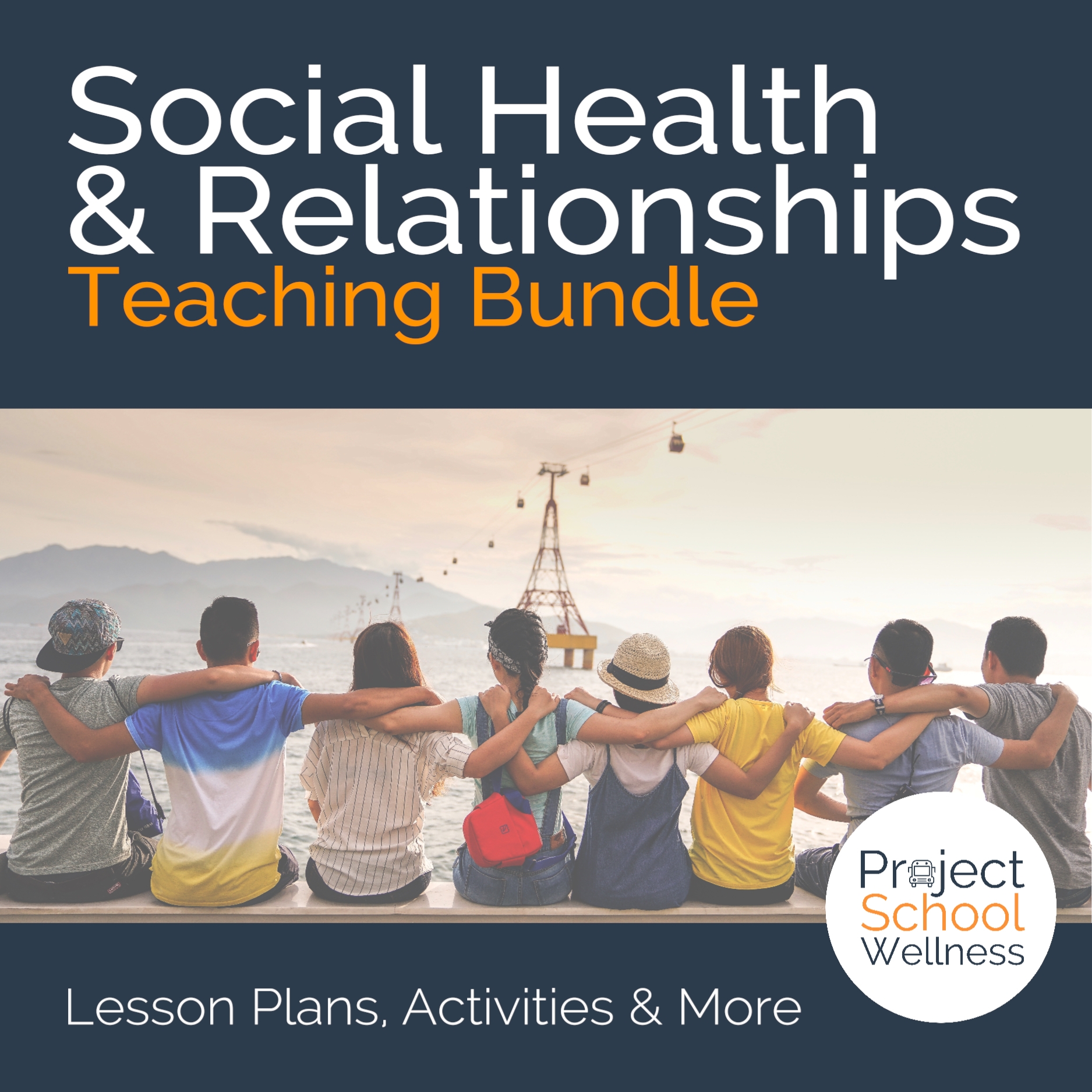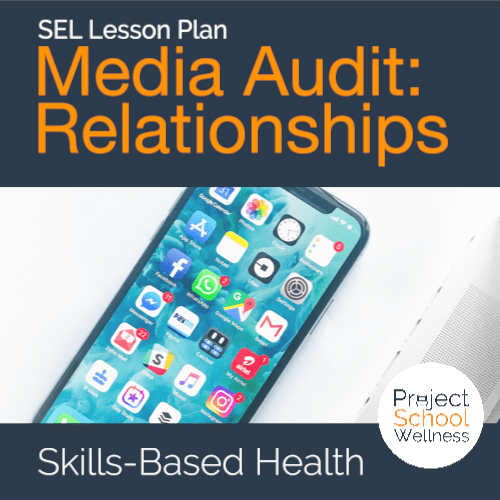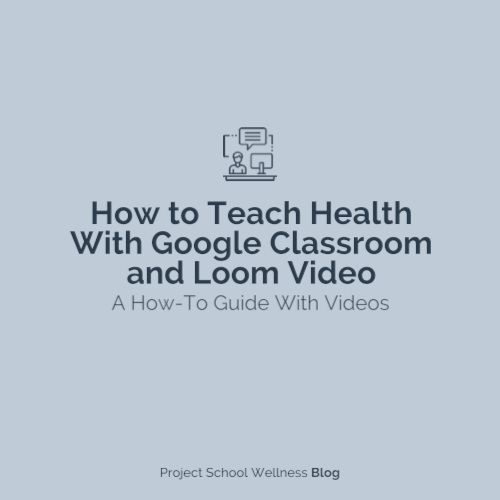Why Social Health is Important
and Should be Taught in Health Education
Should Social Health Be Taught in Health Education???
Yes. The answer is absolutely yes. That is if your goal as a health educator is to empower students to live thriving lives full of health and happiness, where students have connections, are resilient, and achieve success. If that's your goal, then, yes social health must be part of your health curriculum.

So, what exactly is Social Health?
Social health is one of the eight (or six or ten, depending on your health philosophy) dimensions of health comprehensive health education is based upon. It refers to having healthy friendships, understanding how to be a good friend, and knowing how to navigate social situations. And it connects to important health skills like analyzing influences, interpersonal communication skills, decision making, and advocacy.
At its core, social health is fundamental to a person's ability to thrive. Just thinking about what it feels like to be alone, sheds light on the great power connection plays in life. Simply put when we belong, we flourish.
How Does Social Health Connect to Overall Well-Being?
A person’s social well-being deeply connects to their overall well-being and happiness. And because of the interconnectedness of health (meaning that each dimension of health influences and impacts the other dimensions), the status of a person’s Social health directly impacts the status of the other dimensions of health. Here are a few examples:
- When we feel connected and that we belong, our confidence and happiness levels boost, and we feel safe and secure (Emotional & Mental Health)
- Having people to share life with adds meaning and purpose to our existence (Spiritual Health)
- Learning how to deal with social conflict is fundamental to achieving work and school success and collaboration is critical (Intellectual & Occupational Health). Social friction is inevitable at school and in the workplace, but when we develop strong social skills, we’re able to navigate these tricky situations with success.
Honestly the examples of how social well-being influences well-being are endless. Feel free to pause reading for a second and think about some specific ways your ability to connect with people, be a great friend, and navigate social conflict have enhanced your life.
How Can We Teach Students to Develop Social Skills?
Understanding why social health is important is one of piece of the puzzle. The other is to teach students how to nurture social well-being and strengthen their personal connections.
As with every topic, the first priority is to create buy-in. Thankfully, students rarely struggle to see the importance of learning about Social Health and how to build social skills. Generally, they can quickly identify why Social Health matters in their life. And if they’re struggling, this TED Talk is my go too (I even have a lesson plan on it).
Once they better understand just how important and relevant social health is, then we can actually get into the details of building social skills. Here are some of the more specific social skills I work on with students:
- Examining exactly how to be a good friend
- Building healthy habits for making friends
- Understanding the difference between healthy vs. unhealthy relationships
- Analyzing how the media influences relationships
- Learning how to advocate for yourself in relationships
- Developing interpersonal communication skills: general skills and conflict resolution
Truthfully, there are sooooo many ways to teach students how to build social health and enhancing their ability to make connections. These are just a few of the areas I’ve chosen to focus on and your focus could look totally different.
Free Social Skills Classroom Posters
Tips for Teaching Social Health
Before signing off, I want to share five tips with you for showing students how important Social Health is and teaching them how to nurture social well-being.
- Teach social skills - First things first, take time to intentionally teach students what specific social skills look like and practice doing the skills
- Model, Model, Model - After introducing and familiarizing students with specific social skills, model the skills whenever and wherever you can!
- Use the media to help students better understand what social skills look like in real life, how skills are performed, and the impact they create on relationships and interactions - Time to take the media students consume most and use it as a teaching tool!
- Reinforce the development of social skills whenever possible - Be on the lookout for opportunities to praise students for being a good friend and thoughtfully challenge students when they could be more kind and respectful.
- Set high expectations for social behavior in your classroom and follow through - Generally, students raise to whatever expectation the teacher sets. By making kindness and respect the norm, students will naturally develop key social skills.
A Free Tool for Teaching Social Skills
Oh, and one more thing. I wanted to make sure you had a chance to grab our free social skills posters and checklist. Click here to read the blog post and sign up below to have the posters delivered to your inbox!
Free Resource Library
Grab the freebie featured in this post, along with 30+ other free goodies in our Free Resource Library! Sign up below for instant access.
Hello. I'm Janelle!
A middle school health teacher turned curriculum developer (and #WAHM). I'm on a mission to share the easiest-to-teach, most impactful health lesson plans on the Internet. Because your time and energy is better spent on teaching and connecting, not on planning and prep.

